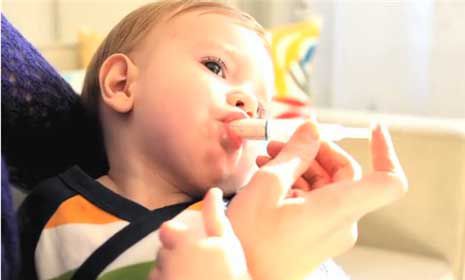When your baby or toddler is having a rough time, it can be difficult to tell if they’re tired and cranky or if something serious is wrong.
If you’re the parent, it’s essential to trust your instincts when it comes to these situations. Always get medical attention when needed!
Baby or Toddler Illness: Common Symptoms
When you’re feeling down about your little one, take heart – there are many things you can do to make them feel better. Here are the most common symptoms of illness in babies and toddlers and what to do about them.
Babies usually have colds, flu, or other respiratory infections. Symptoms may include fever, poor appetite, coughing, difficulty breathing, and red eyes and skin. If your baby is unwell and has any of these symptoms, take them to the doctor immediately.
Toddlers’ illnesses can be more complicated. They may have diarrhea or a rash. If your toddler has trouble breathing or is not eating or drinking enough, call 911 immediately. Your child may also need antibiotics if they have a severe infection.
If you think your child has the flu or another respiratory infection, give them plenty of fluids and rest. See a doctor if they’re not getting better within a day or two.
And if your toddler is having diarrhea or a rash, give them plenty of fluids and electrolytes (such as Pedialyte) and tend to their general health as well – like providing plenty of toys and activities that keep them active and amused.
What To Do When Your Baby Or Toddler Is Sick
When your baby or toddler is sick, you can do a few things to help them feel better. Here are some tips to get started:
1. Make sure they drink plenty of fluids. Drinks like water, juice, and milk are ideal, but feel free to give them whatever they want if they’re not drinking enough. If their fever is high, give them ibuprofen or acetaminophen as needed.
2. Try to keep their temperature down. A fever is a sign that your baby or toddler is fighting off an infection, so try to keep it under control by keeping them cool and comfortable. If their fever spikes again, give them ibuprofen or acetaminophen as needed and call the doctor.
3. Encourage rest. When your baby or toddler is feeling sick, they may not want to do anything else but rest. Try to let them sleep as much as possible to recover faster.
4. Avoid stress in general. When your baby or toddler is sick, it can be hard enough just to deal with the symptoms; adding stressors can only make things worse. If possible, try to keep the home environment calm and peaceful so
Diagnosing Illness in Babies & Children
When your baby or toddler is sick, it’s essential to take the time to rule out the most common illnesses. Here are a few tips to help you do just that:
-If your baby has a fever, crank up the thermostat and keep an eye on the temperature. Babies with high fevers often have a more severe illness.
If your baby’s fever is below 102 degrees Fahrenheit, it’s unnecessary to call a doctor. However, if the fever spikes higher than this or there are other signs of an illness such as coughing, crying, or diarrhea, it’s best to get your baby checked out by a doctor.
-If your child has a persistent cough, ask your pediatrician for a chest x-ray. Coughing can be a sign of pneumonia or other respiratory infection.
-If your child has difficulty eating or seems lazy, don’t hesitate to call your pediatrician. Some illnesses (including some forms of meningitis) can make children very unwell and unable to eat or drink.
-If you notice any unusual changes in behavior or energy
Treating Illnesses in Babies & Children
When your baby or toddler is sick, their body fights an infection. Here are some tips on how to help them feel better:
– Keep them hydrated by drinking plenty of fluids, especially if they have a fever.
– Give them ibuprofen or other pain relievers for the ache and fever.
– Rest as much as possible. Your baby or toddler will be more comfortable and recover faster when not fighting the illness.
– Don’t give them anything to eat or drink besides clear liquids until a doctor sees them. This is to avoid any further complications.
Conclusion
As parents, we want to do anything we can to help our children get better. It can be tough to know what to do when they’re sick. Here are some tips on how you can best help your child during a sickness:
1. Stay calm – If you’re too emotional, your child may sense this and become even more stressed.
2. Believe in your child – Even if they don’t seem to know what’s going on, trust that they are doing their best and will get better soon.
3. Make sure your home is safe – Don’t leave them alone if they’re not feeling well or if there is any chance of contagion present; instead, keep them close by so that you can closely monitor their health.
4. Get plenty of rest – If you’re up all night with your sick child, make sure to take time for yourself, too; sleep is essential for adults and children.




